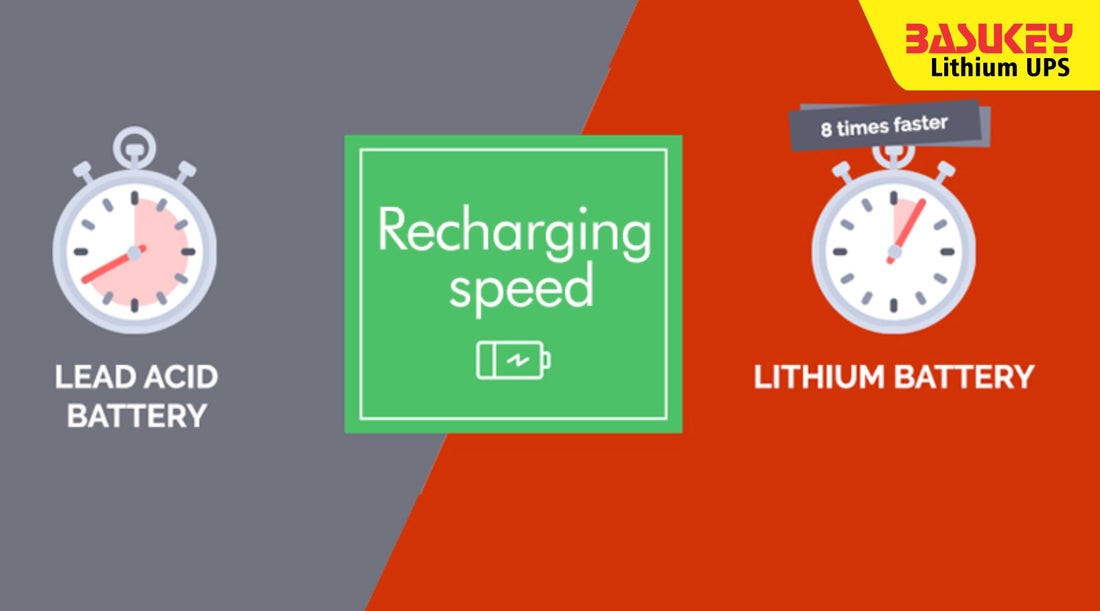
Lead-Acid vs Lithium UPS: Why the Future Isn’t Even Close
Share
When it comes to Uninterruptible Power Supplies (UPS), the choice between Lead-Acid and Lithium batteries can have a significant impact on performance and longevity. Let's delve into the differences between these two technologies to understand why Lithium UPS systems are paving the way for the future.
Efficiency and Energy Density
One of the key advantages of Lithium UPS batteries is their superior energy density compared to Lead-Acid batteries. Lithium batteries can store more energy in a smaller and lighter package, making them ideal for applications where space is limited. In fact, Lithium batteries can offer up to 2-3 times the energy density of Lead-Acid batteries, resulting in a more efficient and compact UPS system.
Lifespan and Cycle Life
When it comes to longevity, Lithium batteries once again outshine Lead-Acid batteries. Lithium batteries have a significantly longer lifespan and can endure more charge-discharge cycles compared to Lead-Acid batteries. This means that Lithium UPS systems require less maintenance and replacement, ultimately reducing the total cost of ownership over the lifespan of the UPS.
Charging Speed and Efficiency
Another area where Lithium batteries excel is in charging speed and efficiency. Lithium batteries can be charged at a faster rate and can achieve a higher charging efficiency compared to Lead-Acid batteries. This not only reduces downtime during recharging but also improves overall UPS performance and reliability.
Environmental Impact
From an environmental standpoint, Lithium batteries are also the more sustainable choice. Lithium batteries are more energy-efficient to produce and recycle compared to Lead-Acid batteries. Additionally, Lithium batteries do not contain toxic materials such as lead, making them safer for the environment and easier to dispose of responsibly.
Conclusion
While Lead-Acid batteries have been a staple in UPS systems for many years, the future of UPS technology is clearly leaning towards Lithium batteries. With their higher energy density, longer lifespan, faster charging speed, and lower environmental impact, Lithium UPS systems offer a superior solution for critical power backup applications. As technology continues to advance, the gap between Lead-Acid and Lithium UPS systems will only widen, solidifying Lithium batteries as the UPS technology of the future.
